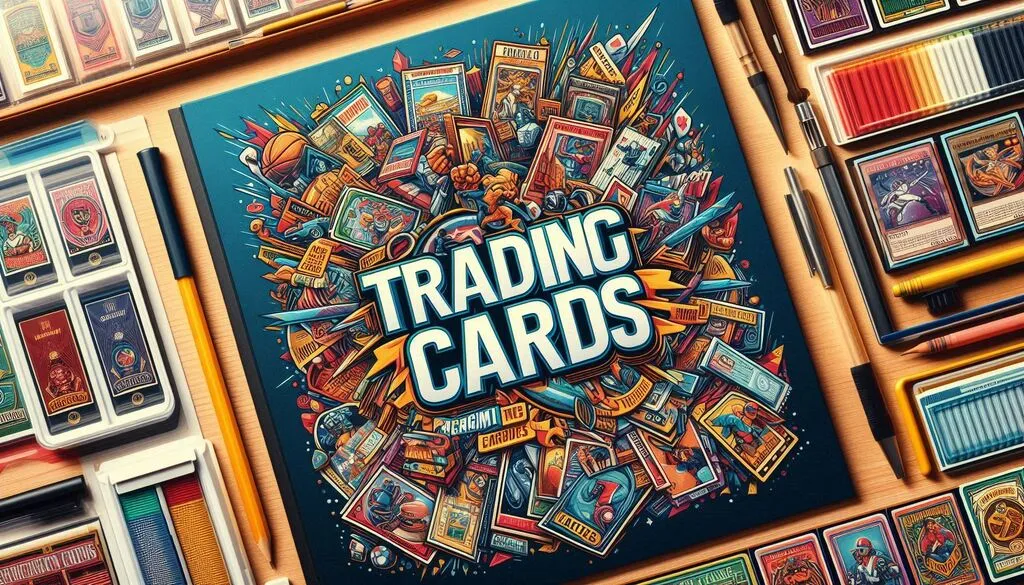Collecting trading cards has become a popular hobby and investment for many enthusiasts. As the value of certain cards skyrockets, collectors often wonder about the financial implications, including whether trading cards can be used as a tax write-off. In this article, we’ll explore the criteria under which trading cards may qualify for tax deductions and what collectors should consider.
Understanding Tax Deductions
What Is a Tax Write-Off?
A tax write-off, or deduction, reduces your taxable income, which in turn lowers the amount of tax you owe. Write-offs can include a variety of expenses related to business operations, charitable donations, and specific personal expenditures.
What Qualifies for a Tax Write-Off?
To qualify for a tax write-off, the expense must generally meet certain criteria:
- Ordinary and Necessary: The expense should be common and accepted in your trade or business.
- Documented: Proper records must be maintained to substantiate the expense.
- Business Use: The expense should be incurred for business purposes.
Trading Cards as a Business
Are You in the Business of Trading Cards?
To use trading cards as a tax write-off, you must be actively involved in the buying and selling of these cards as a business. If you are a casual collector, it’s unlikely that your trading card purchases will qualify as tax-deductible expenses.
Business Structure
If you operate a trading card business, the structure (sole proprietorship, LLC, etc.) can influence your ability to write off expenses. Business expenses can typically include:
- Cost of Goods Sold: The cost of purchasing the trading cards for resale.
- Supplies and Materials: Expenses related to maintaining or displaying your collection.
- Operational Costs: Marketing, shipping, and other business-related expenses.
Personal Use vs. Business Use
Collecting for Pleasure
If you collect trading cards primarily for personal enjoyment rather than as an investment or business, you cannot claim these purchases as tax write-offs. The IRS generally does not allow deductions for personal collectibles.
Selling Cards
If you sell trading cards for profit, the expenses associated with acquiring those cards can be considered business expenses. This includes:
- Purchase Price: The amount you paid for the trading cards.
- Maintenance Costs: Any expenses related to maintaining the cards, such as protective sleeves or display cases.
Capital Gains Tax
Selling Cards for Profit
When you sell trading cards at a profit, the sale is subject to capital gains tax. If you held the cards for more than a year, they may qualify for long-term capital gains tax rates, which are generally lower than short-term rates.
Record-Keeping
It’s essential to maintain detailed records of your trading card transactions, including:
- Purchase receipts
- Sale receipts
- Documentation of the condition and value of the cards
This information will be crucial when calculating your capital gains and determining your tax liability.
Consultation with a Tax Professional
Importance of Professional Guidance
Tax laws can be complex and vary by jurisdiction. If you’re considering using trading cards as a tax write-off, it’s wise to consult with a tax professional or accountant. They can provide personalized advice based on your unique situation and ensure compliance with IRS regulations.
Conclusion
Wrapping Up
While trading cards can potentially be used as a tax write-off, several criteria must be met. If you are in the business of buying and selling cards, you may be able to deduct certain expenses related to your trading card activities. However, casual collectors who purchase cards for personal enjoyment will not qualify for tax deductions.
Final Thoughts
Understanding the tax implications of your trading card activities is essential for any collector or investor. By keeping thorough records and consulting with a tax professional, you can navigate the complexities of tax write-offs and ensure that you are maximizing your financial benefits. Whether you view trading cards as a hobby or a business, being informed will help you make smarter decisions regarding your collection.
